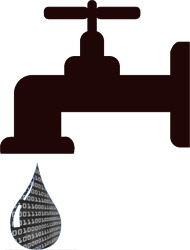DNS remains for Domain Name Server. Whenever you write a web address into your program bar, a solicitation is sent to a Domain Name Server. This server matches space names to IP addresses where the site is really facilitated. The DNS then advises your program which IP location to go to with a specific end goal to stack the site you have asked.
DNS makes an interpretation of space names into IP locations, spoke to by a progression of numbers. For instance, one of Yahoo’s IP locations is 67.195.160.76, and when you write in “www.yahoo.com” to your location bar and land at Yahoo, that is on the grounds that your ISP (Internet Service Provider), with the assistance of their DNS servers, have deciphered that space name from that numerical IP address
In a perfect world, when you’re utilizing a VPN, it’s your VPN’s DNS servers making an interpretation of these IP addresses into space names, instead of your unique ISP. However, now and again, Windows defaults to its unique settings and deciphers those IP addresses through your ISP’s DNS servers, as opposed to your VPN.
One of the minimal known actualities about VPN administration is that notwithstanding the advantages of a changed IP location and information encryption, individual data can even now hole out in the open through something many refer to as a DNS leaks. Some VPN suppliers fabricate DNS leek arrangements directly into their product. For those that don’t, there are manual arrangements too.
 What is a DNS leaks?
What is a DNS leaks?
In the event that you simply get to the web through your standard association by means of your ISP (Internet Service Provider), your PC will be advised to utilize your ISP’s DNS servers. This implies all lookup solicitations will experience your ISP unless you physically determine something else.
At the point when joined with a Virtual Private Network, your PC will be advised by the VPN to utilize their safe DNS servers that are unique in relation to the ones appointed to you by your ISP. On the other hand, do to security blemishes characteristic in windows OS, your PC can entirely utilize the wrong DNS servers, accordingly uncovering your actual IP location to the site you are going to.
Causes of a DNS Leaks?
DNS Leaks can be brought on by an assortment of variables. Something as straightforward as a site deferring its reaction to your PC can bring about a windows machine to change to the unsecured DNS servers. This is the strategy used by numerous vindictive sites to bring about DNS releases and uncover private client data.
Detect DNS Leaks?
DNSLeaktest.com is a free site that can recognize DNS leaks in a matter of seconds. They additionally have supportive data on the most proficient method to quit spilling DNS data automatically. To get the most out of DNS Leak Test, you need to interface with your VPN administration before going to their site, or ensure you revive your program once your association is set up.
By what means would I be able to Prevent DNS Leaks?
There are 3 answers for this windows security blemish. It is very prescribed that you set your PC to utilize a static IP address. This will ensure your new DNS settings aren’t incidentally overlooked.
Utilize a VPN with inherent DNS Leaks Protection.
Programmed DNS Leaks Fix.
Manual Fix.
- Utilize a VPN with inherent DNS Leaks Protection.
While most VPN’s don’t yet incorporate this component, there are couple that do. The best part is, they are both to a great degree reasonable and mysterious (they don’t keep information or association logs)
- Programmed DNS Leak Fix
DnsLeakTest.com has programming that ought to settle DNS spills on most windows working frameworks consequently. It essentially distinguishes a VPN association and powers your PC to utilize the protected DNS servers when joined.
- Manual Fix
In some cases the least complex technique works the best. Before you utilize the manual alternative, please ensure your PC has a static system IP rather than one relegated by DCHP, generally your endeavors could be squandered.
You should do nothing more than determine a DNS server for your PC or switch that doesn’t have a place with your ISP. Comodo SecureDNS is a free DNS server that works awesome. At the point when utilizing the manual alternative, it’s imperative to ensure that your ISP doesn’t utilize Transparent DNS Proxies.
Please follow theses steps on your PC:
- Head to the Control Panel then Network Settings then Network Connections
- Right tap on the system connector you use for your home syste
- Click on properties
- Select Internet Protocol Version 4 (TCP/IPV4)
- snap properties
- Switch from Obtain DNS Address Automatically to Use the accompanying DNS Server Address
- finally Enter your new secure DNS data



One thought on “All about DNS Leaks”
what about use dnsleak test in terminal mode? I use this one https://github.com/macvk/dnsleaktest